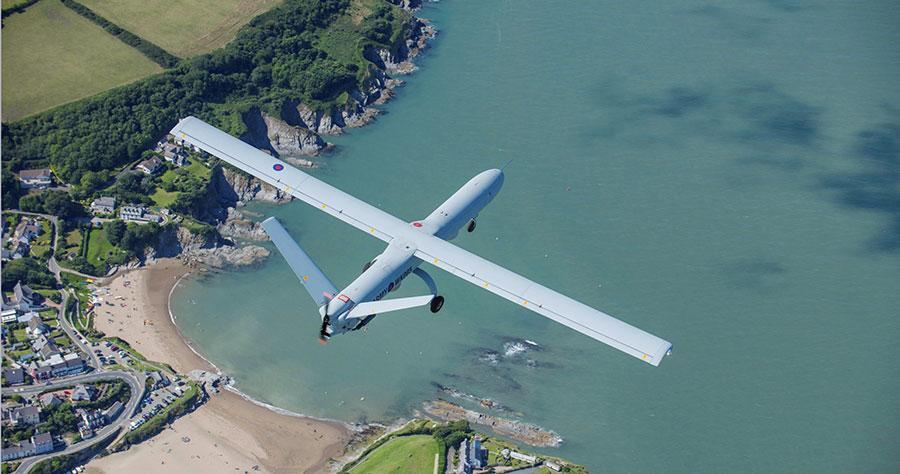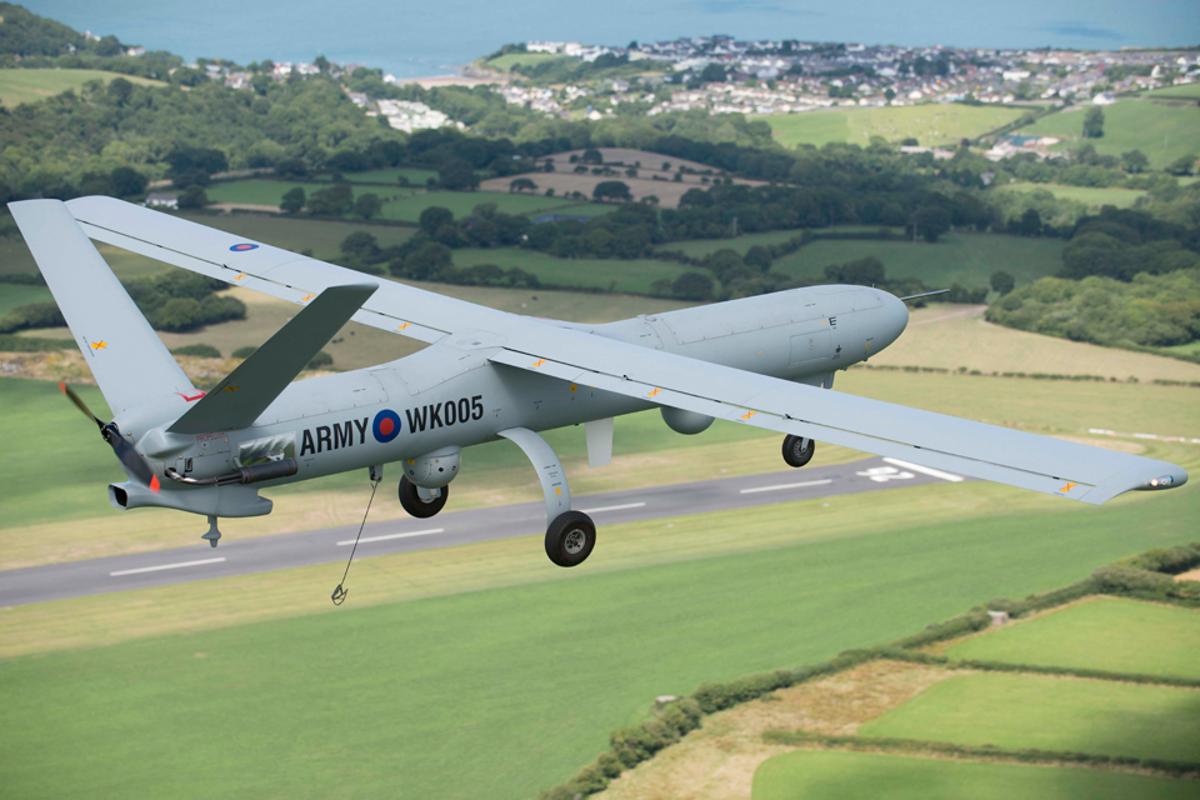Since first taking to the air in June 2009, trials of the UK's homegrown Watchkeeper tactical unmanned aerial vehicle (UAV) have been conducted by industry partners including QinetiQ. The UK Ministry of Defence (MoD) has now announced the aircraft has been awarded a Release To Service, clearing the way for flight training to begin with the Royal Artillery.
The Watchkeeper WK450, which was developed and built for the British Army by Thales UK after being awarded an £800 million contract in 2005, is based on the Elbit Hermes 450 UAV. With the ability to stay in the air for more than 16 hours at a time, the Watchkeeper is designed to support ground troops with its surveillance and reconnaissance capabilities. Although it is currently unarmed, the Royal Artillery may weaponize the Watchkeeper in the future.
To this end, the all-weather aircraft with a wingspan of 35 ft (10.6 m) boasts dual payload capabilities and carries a synthetic aperture radar/ground moving target indicator (SAR/GMTI) and either a datalink relay or electro-optical/infrared (EO/IR) sensor, with the option of a laser target designator (LTD). Although unmanned, Thales says the Watchkeeper is certified to the same safety standards as a manned aircraft.

It is designed for automatic take-off and landing and is operated by a crew of two from a ground control station. One operator controls the mission, while the other tracks the information gathered by the UAV's sensors. Thales says the information gathered will allow commanders to detect, identify and track targets without putting troops in harm's way.
The Watchkeeper is the first UAV to be granted a Release To Service by the MoD and the only UAV of its type allowed to be flown in UK airspace. With Thales test pilots having already completed over 600 hours of flight tests from West Wales Airport, the British Army will now begin test flights at the MoD's Boscombe Down aircraft testing site in Wiltshire, England, with 1st Artillery Brigade pilots trained to fly the aircraft in a restricted airspace over the Salisbury Plain Training Area at altitudes of between 8,000 and 16,000 ft (2,440 and 4,880 m).
Originally slated to enter service from late 2010, the Release To Service puts the aircraft on track to achieve this goal sometime this year.
The video below shows the Watchkeeper in action.





